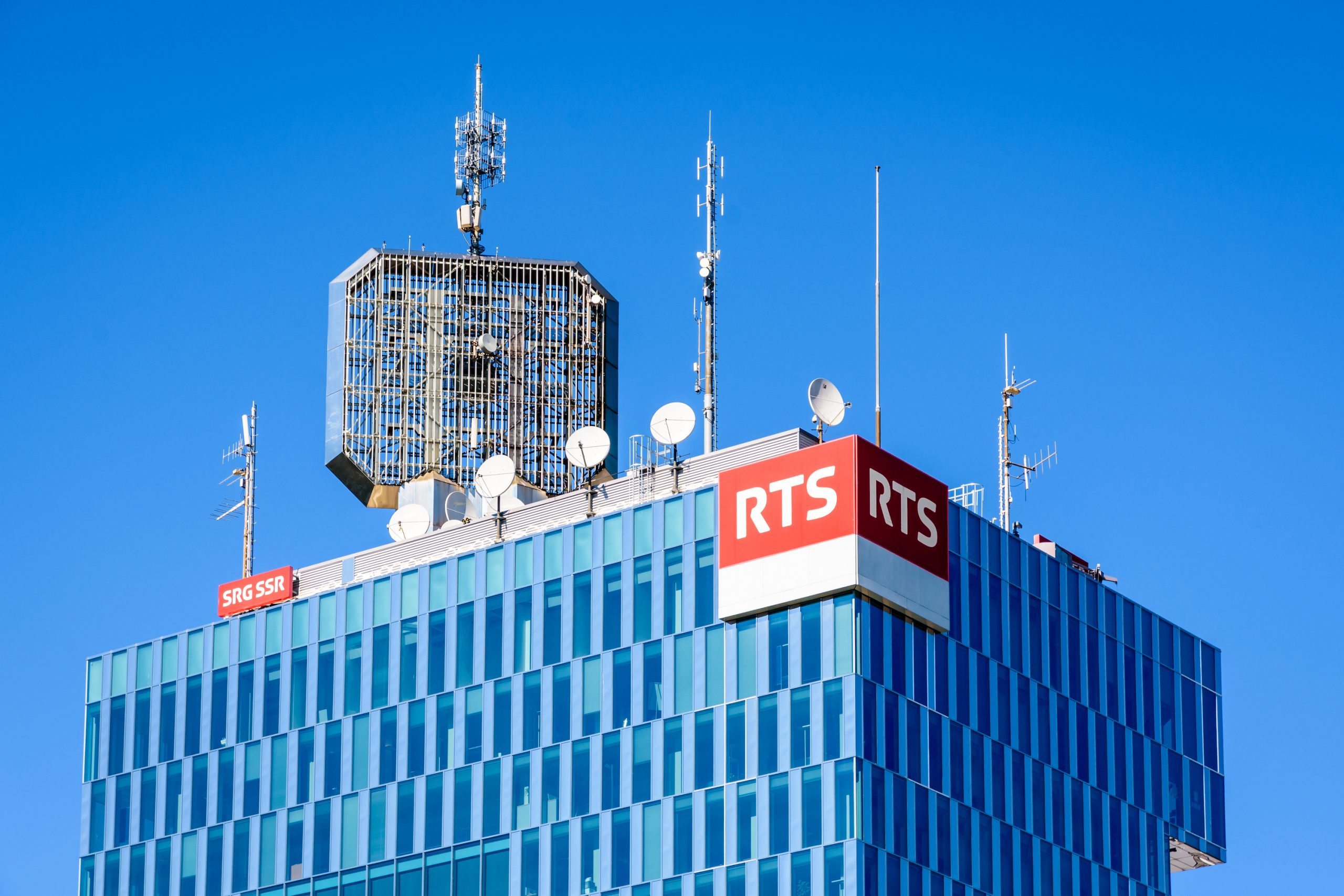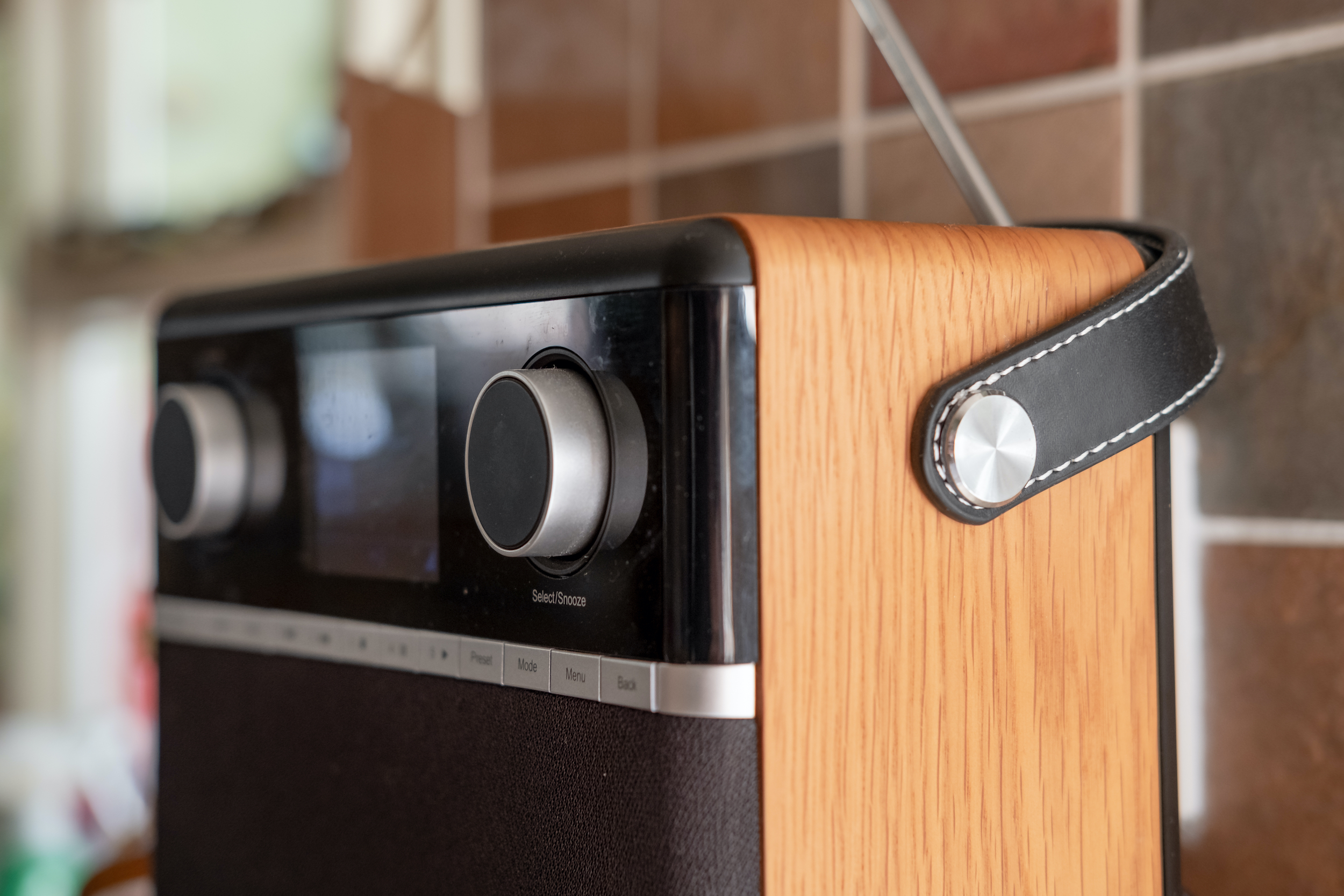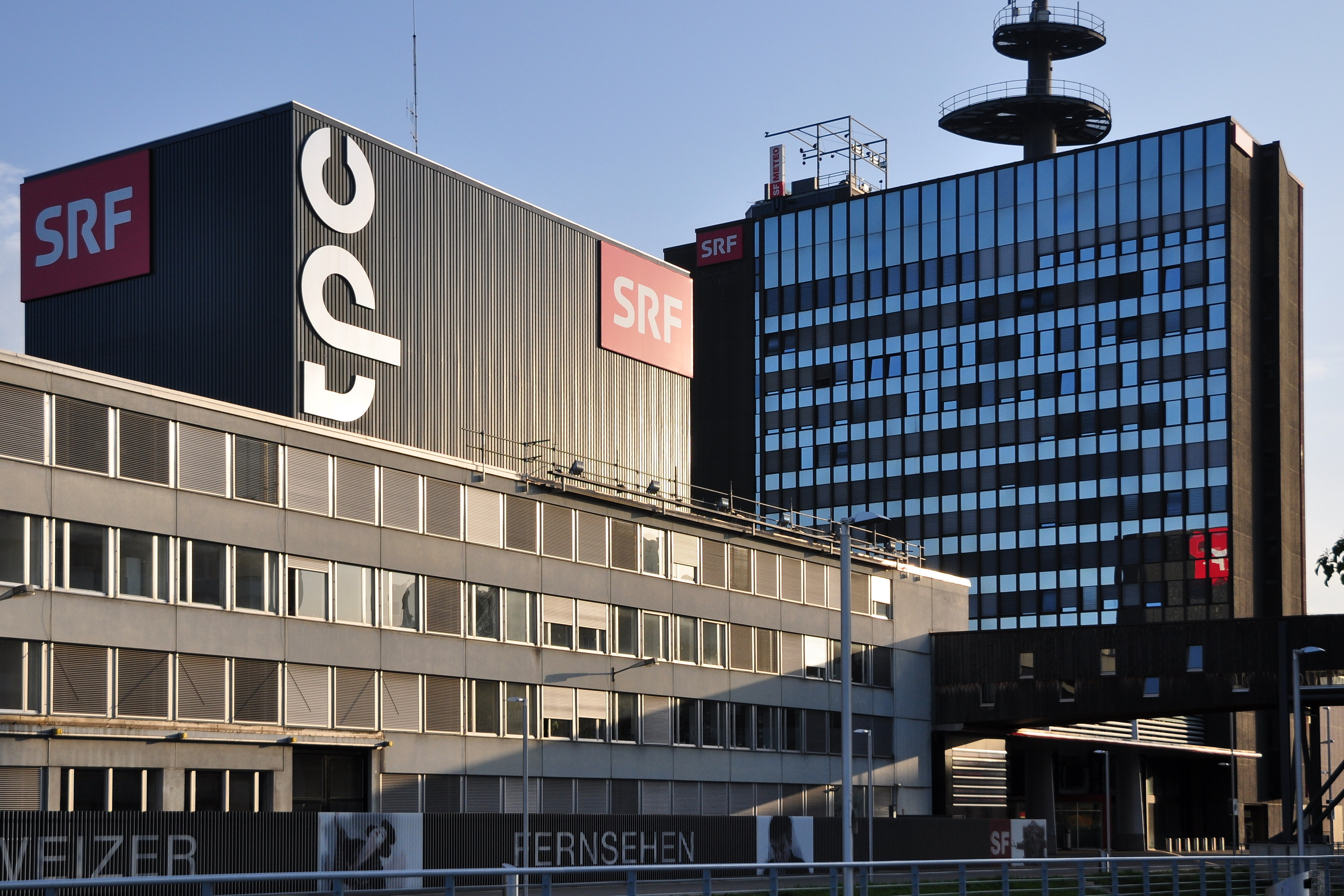INSIGHT
100 years of radio in Switzerland
5th October 2022
The CEO of Swiss public broadcaster SRG SSR, Gilles Marchand, reflects on 100 years of radio in Switzerland, and looks to the century ahead.

By Gilles Marchand, CEO of SRG SSR
While everywhere in Europe, public service is subject of lively debates and its relevance is even questioned (something we all know well in Switzerland…), it is worthwhile going back in time and setting historical benchmarks.
Making long time in the current turmoil is useful.
Of course, historians disagree on when it all began. So when should we date back the beginnings of the radio in Switzerland…? One thing is certain: French-speaking Switzerland has shown boldness and initiative in this field. For it was in Lausanne that everything began.
Very often technical innovation and military interests are closely linked together. But in this case, the first radio reception licenses were granted to watchmakers in La Chaux-de-Fonds and Zurich, who were fascinated by the reception of the time signal broadcast since 1910 by the Paris transmitter.
Read more: SSR SRG’s Director General on Public media and direct democracy (Insight)
A strong interest in time measurement and punctuality are perhaps the fundamental reasons why Switzerland is a pioneer country for radio!
But the fact is that on 14 October 1922, on the still very rural heights of Lausanne, Roland Pièce, the person in charge of the transmitter at the Blécherette aerodrome, together with Paul Louis Mercanton, had a crazy brilliant idea: playing a music record (or rather rolls) to entertain the passengers of a Paris-Lausanne flight. This was probably the first radio broadcast in Switzerland.
From 1922, Lausanne became the heart of the Swiss radio movement.
After that, everything went very fast. Utilitas was founded in Lausanne in February 1923. The Société Romande de Radiodiffusion, also in Lausanne, followed in July 1923. The one in Zurich in February 1924, then Geneva at the beginning of 1925, Bern in August, Basel in 1926, Lugano in 1930.
It was an explosion, a real burst of creative fever with the great potential of this new technology.
How can we imagine for a second that weakening the SRG would restrain the appetite of Netflix, Google, Facebook, Amazon, or even the telephone operators who frenetically buy sports rights to better sell their connections?
But soon the scarce resources of the reception license were no longer sufficient to ensure the development of radio. The airwaves did not stop at the borders and chaos threatened. So the Federal Council took up the matter and on 24 February 1931 authorised the creation of the SRG as the umbrella organisation for the regional companies. The secret of this complex organisational model is detained by federal Switzerland…
In March 1931, the Federal Council granted the SRG its first national license. The transmitters in Sottens and Beromünster were opened, followed by Monte Ceneri two years later in 1933. They were to become the flagship of radio’s golden age.
This brief return to the origins gives us many valuable lessons to shed light on current debates. For history repeats itself!
Let’s take the example of the relationship, always delicate, between the public service and the private media. We are aware of the current desire of publishers to limit as much as possible SRG’s development on the Internet and in all customised digital offers.
Did you know that when SRG was founded, publishers managed to forbid SRG news programmes to have their own editorial offices? Actors read out the news of the Swiss Telegraphic Agency (STA) on air and the STA was designated the exclusive provider of national news for a time!
Other battles of the same kind also arose with the arrival of television in the 1950s. There was always the strange idea that private media would be better off, if public service were worse off.
But frankly speaking, how can we imagine for a second that weakening the SRG would restrain the appetite of Netflix, Google, Facebook, Amazon, or even the telephone operators who frenetically buy sports rights to better sell their connections?

Another fascinating subject, which has been with us for a century, is the role of the media in the balance between the global and the local.
For Switzerland, radio quickly became a vector of outreach, well beyond its borders. During the Second World War, the broadcasts and voices of René Payot, Jean Rudolf von Salis and Fulvio Bolla became a reference.
And very soon, SRG offered a short-wave service for Swiss people abroad, but also for all those around the world who were interested in information delivered by a neutral country. An interesting concept today…
Radio Suisse Internationale, which later became www.swissinfo.ch, continued to play this role, complementing Swiss programmes broadcast daily on TV5Monde and 3 Sat.
This openness to the world is vital for our country and radio has clearly led the way.
History shows us how important it is for our programmes to be able to address the whole population, whatever their interests and whatever media or channel they use.
The SRG’s foreign mandate is a valuable asset in explaining our realities, issues and agendas to the rest of the world.
At the same time it is also essential to anchor the programmes in the realities of the field, of the cantons. Radio went beyond that, by developing a sense of regional identity.
In German-speaking Switzerland, the use of dialect of course played a key role.
Even today, there is some debate about the weight of dialect in SRF’s programming, compared with the use of German. Jacques Donzel wrote a few years later that radio had simply created the French-speaking part of Switzerland.
This osmosis is achieved through meetings, voices and rhythm.
From the morning show that wakes us up to “La ligne de cœur” that accompanies us into the night. With moments of information, culture and entertainment in between.
Today, this generalist dimension of SRG is being debated.
Some people believe, wrongly, that public service should limit itself to offering only what the private media are unwilling or unable to cover.
What a strange and narrow view of the role of public service. History shows us how important it is for our programmes to be able to address the whole population, whatever their interests and whatever media or channel they use.
Read more: 100 Years of the BBC
This is the very recipe for cohesion and connection. This is the mainspring of a public service. Simply doing something else, no. Doing as much as possible differently, yes!
The third lesson, which is totally relevant today, is radio’s great capacity for innovation nd adaptation. Whether in terms of production or distribution, the medium has constantly adapted and reinvented itself.
Each time, there have been great professional and political battles.
From this point of view, we will not be disappointed with the switch from FM to DAB in 2025…
🎉📻 C’est parti pour deux jours de fête des #100AnsRadio! On vous attend à la Sallaz à #Lausanne pour de nombreuses activités et rencontres! Programme et infos 👉https://t.co/Ykjjv4CNLZ #RTSAvecVous pic.twitter.com/t6tpoe2PhW
— RTS (@RadioTeleSuisse) October 1, 2022
But beyond that, there is of course the question of the evolution of audio usage, podcasts, voice assistants, which are being deployed in parallel with linear broadcasting.
The fact is that in our field, the arrival of new technologies and new offers has never threatened radio. On the contrary, it has always been able to bounce back, thanks to the flexibility of its production methods and the infinite creativity of its teams.
I would like to pay tribute to them here. I would like to pay a warm tribute to all those who, through their work and often their passion, have created, developed and carried the radio. The torch has been passed on. The next generation is just as passionate. Of course, times and society have changed. The temptation of nostalgia for the good old days hovers from time to time. But an analysis of the long time also shows that there are beautiful pages to be written, to be reinvented.
And allow me to conclude with this wink. A few days ago, the annual barometer of media quality in Switzerland was published. The top programme in the German-speaking part of Switzerland is “Echo der Zeit”. A news programme with a focus on international affairs, created on … 17 September 1945. One of the oldest radio programmes in the world, here in Switzerland, considered in 2022 to be a programme with high added value
Long time and benchmarks. That is public service. Long live the radio and see you in 2122.
Le radio a 100 ans en Suisse
5 Octobre 2022
Le PDG du radiodiffuseur public suisse, Gilles Marchand, revient sur 100 ans de radio en Suisse et se tourne vers le siècle à venir.

Par Gilles Marchand, PDG de SRG SSR
Alors que, dans toute l’Europe, le service public est l’objet d’intenses discussions, de remises en cause parfois existentielles (nous en savons quelque chose en Suisse…), il est utile de se replonger dans l’histoire pour fixer les repères.
Redonner un peu de temps long dans le bouillonnement actuel, c’est utile.
Il y a bien sûr un petit débat d’historiens à propos des débuts. Quand dater le démarrage suisse de la radio… ?
Une chose est sûre toutefois, dans ce domaine comme dans d’autres, la Suisse francophone fera preuve d’audace et d’initiative.
Car c’est bien ici que tout débute !
Comme souvent en matière d’innovation technique, les intérêts militaires ne sont jamais très loin…
Mais dans ce cas, il faut aussi relever que les premières concessions de réception radio sont attribuées … à des horlogers de La-Chaux-de-fonds et de Zurich, passionnés par la réception du signal horaire diffusé depuis 1910 par l’émetteur de Paris.
Une appétence forte pour la mesure du temps et la ponctualité, voilà peut-être les raisons fondamentales pour lesquelles la Suisse est une terre pionnière pour la radio !
Mais le fait est que le 14 octobre 1922, sur les hauteurs encore très campagnardes de Lausanne, le responsable de l’émetteur l’aérodrome de la Blécherette, un certain Roland Pièce, accompagné de Paul Louis Mercanton, a eu l’idée aussi saugrenue que géniale de passer un disque (ou plutôt des rouleaux) de musique pour distraire les passagers d’un vol Paris-Lausanne. C’est probablement la première émission de radio en Suisse.
Dès 1922, Lausanne devient le centre du mouvement radiophonique suisse.
Ensuite tout s’enchaînera très vite. Utilitas est créée à Lausanne, en février 1923. La société romande de radiodiffusion, toujours à Lausanne, suivra en juillet 1923. Celle de Zurich en février 24, puis Genève début 25, Berne en aout, Bâle en 26, Lugano en 1930.
C’est un foisonnement, une véritable poussée de fièvre créatrice devant les formidables potentiels de cette nouvelle technologie.
Comment imaginer une seconde que l’affaiblissement de la SSR freinerait les appétits de Netflix, google, Facebook, Amazone, ou encore des opérateurs téléphoniques qui achètent les droits sportifs sans compter pour mieux vendre leurs connexions?
Mais rapidement, les maigres ressources de concession de réception de suffisent plus à assurer le développement de la radio.
Les ondes de ne s’arrêtent pas aux frontières et la pagaille menace.
Alors le conseil fédéral se saisit de l’affaire et la règle en autorisant la création, le 24 février 1931, de la SSR comme organisation faîtière des sociétés régionales, dans un modèle organisationnel complexe dont la Suisse fédérale a le secret…
Et dans la foulée, le Conseil Fédéral accorde à la SSR sa première concession nationale en mars 1931. Les émetteurs de Sottens, Beromünster, puis deux ans plus tard en 1933, de Monte Ceneri, sont ouverts.
Ils deviendront les étendards des temps glorieux de la radio.
Ce bref retour aux sources nous apporte de nombreux enseignements précieux pour éclairer les débats actuels. Car l’histoire se répète !
Prenons l’exemple la relation, toujours délicate, entre le service public et les médias privés.
Nous connaissons toutes et tous la volonté actuelle des éditeurs de limiter autant que possible le développement de la SSR sur internet et toutes les offres numériques personnalisées.
Et bien figurez-vous qu’à la création de la SSR, les éditeurs obtiennent l’interdiction pour les programmes d’information de la SSR de disposer de leurs propres rédactions. Des comédiens lisent à l’antenne les nouvelles de l’ATS, qui sera ainsi désignée, pour un temps, comme fournisseur exclusif des informations nationales !
D’autres batailles du même genre verront aussi le jour avec l’arrivée de la télévision dans les années 50. Avec toujours cette étrange idée : les médias privés iraient mieux si le service public allait moins bien.
Mais franchement dit, comment imaginer une seconde que l’affaiblissement de la SSR freinerait les appétits de Netflix, google, Facebook, Amazone, ou encore des opérateurs téléphoniques qui achètent les droits sportifs sans compter pour mieux vendre leurs connexions ?
Autre thème passionnant, qui nous accompagne depuis un siècle, le rôle des médias dans l’équilibre entre le global et le local.
Assez vite, la radio va s’imposer comme un vecteur de rayonnement pour la Suisse, bien au-delà des frontières.
Durant la deuxième guerre mondiale, les émissions et les voix de René Payot, Jean Rudolf von Salis oder Fulvio Bolla font référence.
Et très vite, la SSR disposera d’un service d’ondes courtes destinés aux Suisses de l’étranger mais aussi à toutes celles et ceux dans le monde entier qui s’intéressent à des informations délivrées par un pays neutre. Concept intéressant en ce moment…
Radio Suisse internationale, qui deviendra Swissinfo sur le web, continue à jouer ce rôle, en compléments des programmes suisses diffusés tous les jours sur TV5Monde et 3 Sat. Cette ouverture au monde est vitale pour notre pays et la radio a clairement ouvert la voie.
L’histoire nous montre combien il est important que nos programmes puissent s’adresser à toute la population, quelques soient ses centres d’intérêt et le média ou canal utilisés.
Le mandat pour l’étranger de la SSR est un atout précieux pour expliquer nos réalités, enjeux et agendas au reste du monde.
Mais en même temps, il est aussi essentiel d’ancrer les programmes dans les réalités du terrain, des cantons.
La radio ira au-delà, en développant un sentiment d’identité régionale.
En Suisse alémanique, le recours au dialecte jouera bien sûr un rôle clé.
On discute aujourd’hui encore de son poids dans les programmes de SRF, par rapport à l’usage de l’allemand.
Jacques Donzel écrira quelques années plus tard que la radio a tout simplement créé la suisse romande.
Cette osmose passe par des rendez-vous, des voix, un rythme.
De la matinale qui nous réveille à ligne de cœur qui nous accompagne dans la nuit. Avec entre deux des moments d’information, de culture et de divertissement.
Aujourd’hui, cette dimension généraliste de la SSR est débattue.
Certains pensant, à tort, que le service public devrait se limiter à ne proposer que ce que les médias privés ne veulent ou ne peuvent couvrir.
Quelle étrange et étriquée vision du rôle du service public. L’histoire nous montre combien il est important que nos programmes puissent s’adresser à toute la population, quelques soient ses centres d’intérêt et le média ou canal utilisés.
C’est la recette même de la cohésion, du lien. C’est la raison d’être d’un service public.
Faire simplement autre chose, non. Faire le plus possible autrement, oui !
Troisième enseignement totalement d’actualité : la formidable capacité d’innovation et d’adaptation de la radio. Qu’il s’agisse de fabrication ou de distribution, le média s’est adapté en permanence, s’est réinventé.
Avec à chaque fois de belles empoignades professionnelles ou politiques.
De ce point de vue, nous ne serons pas déçus par la bascule, en 2025 de la FM au DAB+…
🎉📻 C’est parti pour deux jours de fête des #100AnsRadio! On vous attend à la Sallaz à #Lausanne pour de nombreuses activités et rencontres! Programme et infos 👉https://t.co/Ykjjv4CNLZ #RTSAvecVous pic.twitter.com/t6tpoe2PhW
— RTS (@RadioTeleSuisse) October 1, 2022
Mais au-delà, il est bien sûr question de l’évolution des usages de l’audio, des Podcast, des assistants vocaux, qui se déploient en parallèle aux diffusion linéaires.
Le fait est que dans notre domaine, l’arrivée de nouvelles technologies, de nouvelles offres, n’a jamais menacé la radio. Elle a au contraire toujours su rebondir, grâce à la souplesse de ses modes de production et la créativité infinie de ses équipes.
J’aimerai ici leur rendre hommage.
Saluer chaleureusement toutes celles et ceux qui, par leur travail, leur passion souvent, ont créé, développé et porté la radio. Le flambeau est transmis. La relève est là tout aussi passionnée.
Bien sûr, les temps et la société ont changé. La tentation de la nostalgie du bon vieux temps plane de temps en temps. Mais l’analyse du temps long montre aussi que de belles pages sont à écrire, à réinventer.
Il y quelques jours, le baromètre annuel de la qualité des médias en suisse a été publié.
L’émission qui arrive en tête, en suisse alémanique, c’est « Echo der Zeit ». Une émission d’information, notamment internationale, crée le … 17 septembre 1945. Une des plus anciennes émissions de radio du monde, ici en Suisse, considérée en 2022 comme une émission à haute valeur ajoutée.
Temps long et repères. C’est cela le service public. Vive la radio et rendez-vous en 2122.

About the author | A propos de l'auteur
Gilles Marchand is the CEO of Swiss public broadcaster, SRG SSR.
Gilles Marchand est le PDG du radiodiffuseur public suisse, SRG SSR.
Related Posts
20th May 2022
SRG SSR’s Director General on Public media and direct democracy
“The fate of democracies will depend on…
